A Year in Review: Webster University’s Leif J. Sverdrup Global Teaching Fellowship
May 16, 2024
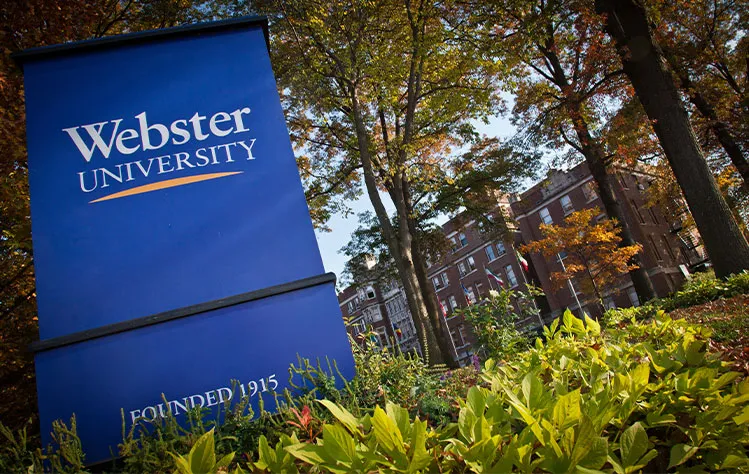
Over the course of the 2023-2024 academic year, several Webster University professors traveled to a different campus location as part of the Leif J. Sverdrup Global Teaching Fellowship program. The innovative program, designed to promote global faculty exchanges, bolsters academic offerings across Webster’s international campuses while fostering greater cultural understanding and collaboration among faculty and students. This year, faculty members engaged in unique teaching initiatives which enhanced both their pedagogical approaches and the educational experience for Webster students.
Alisher Faizullaev: Bridging International Relations
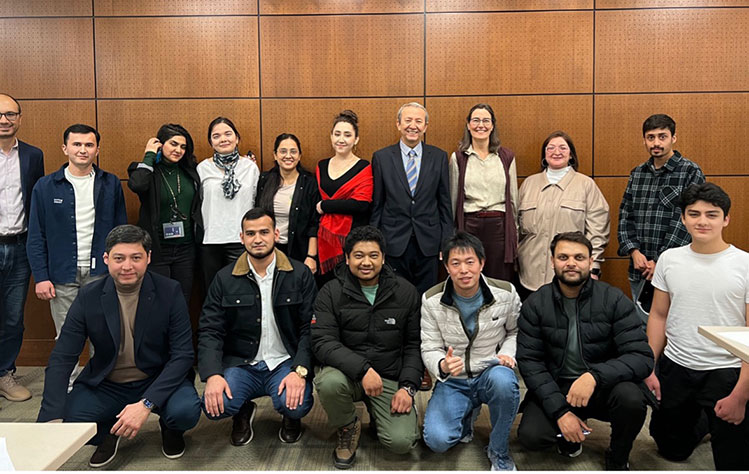 Alisher Faizullaev with students and staff at his public workshop.
Alisher Faizullaev with students and staff at his public workshop.
Alisher Faizullaev, a professor from Webster Tashkent, visited the Webster Groves campus for his fellowship during the spring semester of 2024. A retired diplomat and seasoned author, Faizullaev’s time as a Leif. J Sverdrup fellow extended beyond just teaching in the History, Politics and International Relations department.
Faizullaev created a course on diplomacy and negotiation, which he taught over the course of the semester. He also conducted two interactive public workshops — “The Art of Strategic Negotiation” and “The World of Negotiation and Negotiating the World.” The workshops focused on developing strategic thinking, communication and negotiation skills. Faizullaev also led two private workshops for the Webster Staff Alliance, which focused on developing teamwork and leadership skills.
During his time in Webster Groves, Faizullaev was also featured in an interview with the Ankara Center for Crisis and Policy Studies, discussing the nuances of social diplomacy. Additionally, his chapter on “Digital Diplomacy of the Central Asian Countries” was published in The Oxford Handbook of Digital Diplomacy. He also delivered online lectures for Georgetown, Harvard and Syracuse universities, expanding his influence in academic circles.
Anthi Kalomiri: Enhancing Global Media Studies
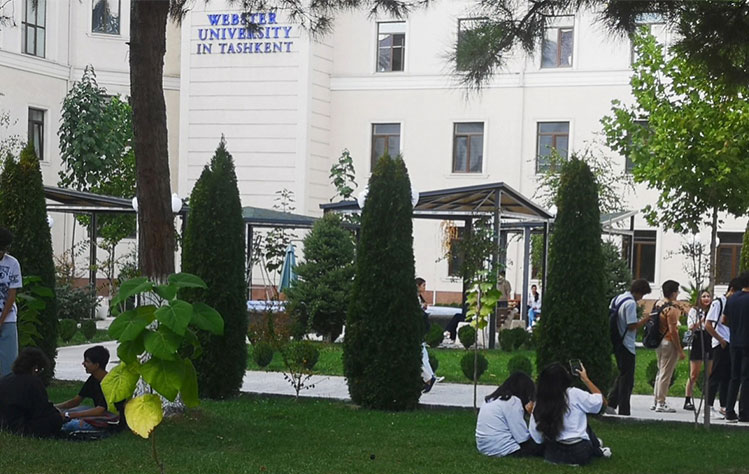 Webster Tashkent's campus captured by Anthi Kalomiri during her fellowship.
Webster Tashkent's campus captured by Anthi Kalomiri during her fellowship.
Anthi Kalomiri, a professor at Webster Athens, took her expertise to Tashkent for the fall 2023 semester. With a background in communications, media studies and diverse student populations, Kalomiri's work in Tashkent focused on leveraging her experience to bridge cultural gaps, enrich media education curriculum and foster a deeper understanding between different cultural perspectives.
During the semester, Kalomiri led a course titled “The Wonder of Curiosity,” which focused on media diversity and social media strategies while aiming to enhance teaching methods and foster a curiosity-driven approach among faculty and students. The curriculum included a seminar that combined in-person and virtual elements, blending traditional and modern educational practices. Kalomiri introduced tools for teaching curiosity by adapting the Socratic methods of dialectic and elenchus, focusing on listening, dialogue and observation.
Kalomiri’s goal was to exemplify how communication techniques can be utilized to foster collaborative knowledge, enabling youth to create innovative and progressive environments locally and globally. Her initiative promoted a comprehensive approach to media studies that is crucial for nurturing global educational environments — reflecting what Webster University seeks to foster.
Benjamin Sawyer: Cultivating Artistic Talent at Webster Leiden
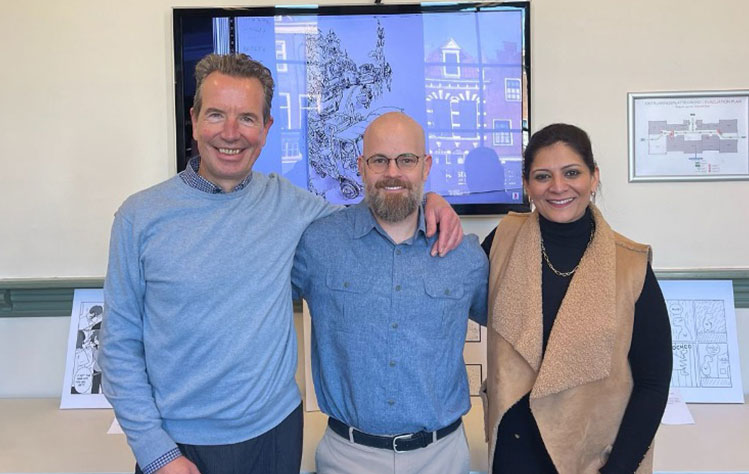 Professor Ben Sawyer (center) with Webster Leiden Campus Directors Professor Jean
Paul van Marissing (left) and Professor Sheetal Shah (right).
Professor Ben Sawyer (center) with Webster Leiden Campus Directors Professor Jean
Paul van Marissing (left) and Professor Sheetal Shah (right).
Benjamin Sawyer, adjunct professor of art and animation from the Webster Groves campus, developed and led a transformative art course in Webster Leiden during the spring semester. With a background in freelance artistry, Sawyer led comprehensive projects in concept art and character design, traditional art, comic book creation and 2D animation.
As part of the concept art and character design course, Sawyer guided students in creating detailed characters, vehicles, creatures and architectural designs using both sketching and digital techniques. These designs contributed to both their portfolios and their ability to envision complex worlds. Sawyer’s course in traditional art focused on refining foundational skills in drawing, painting and sculpting, resulting in portfolios that demonstrated mastery of various media and enhanced artistic expression.
As part of the comic book creation course, Sawyer instructed students on storytelling nuances, from character design and storyboarding to panel layout and digital production. The outcome was a series of printed short stories and digital comics, each reflecting individual creativity and narrative prowess. The 2D animation course introduced the basics of animation, culminating in short films that brought students' visual stories to life.
Sawyer's dynamic teaching not only imparted artistic skills to students with little to no art background but also equipped them with creative tools for self-expression. The course culminated in an art show displaying the students' work, receiving enthusiastic acclaim from the campus community.
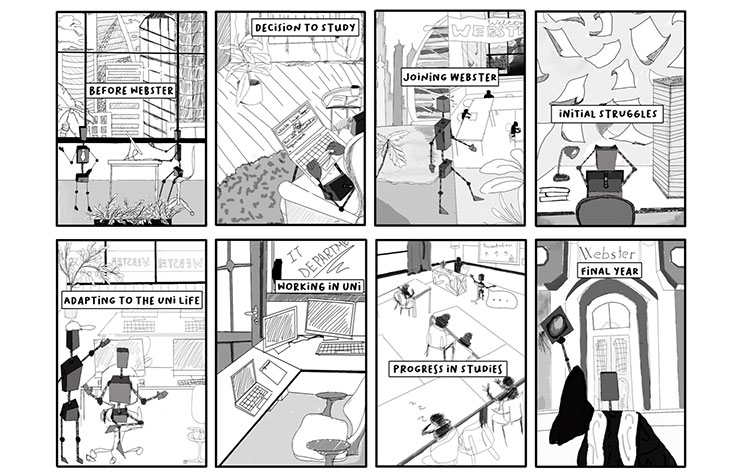 Student work from the art show.
Student work from the art show.
Harm Tjebbo Kessler: Establishing a Social Hub at Webster Tashkent
As part of his fall 2023 fellowship at Webster Tashkent, Harm Tjebbo Kessler, an adjunct professor of management from Webster University's Leiden campus, led a feasibility study for establishing the “Sverdrup Brasserie.” The project aimed to help students develop a business idea for creating a brasserie that would serve as a central gathering place for the university community, promoting social interaction, fostering friendships and encouraging idea-sharing among students and faculty.
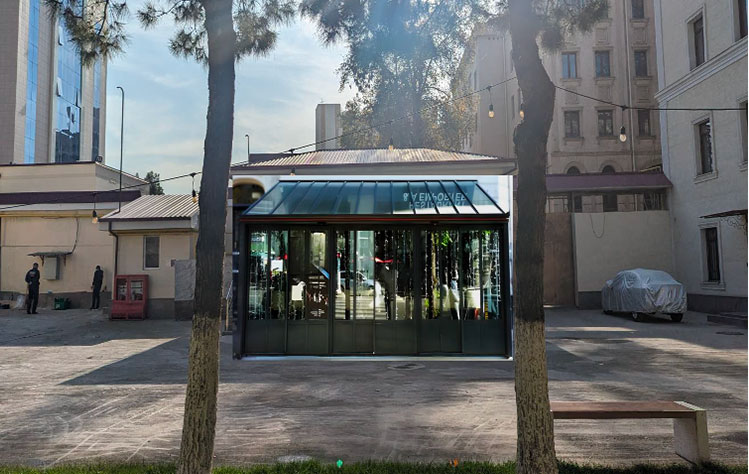 A potential ‘Sverdrup Brasserie’ location at Webster Tashkent. Photo captured by Harm
Tjebbo Kessler.
A potential ‘Sverdrup Brasserie’ location at Webster Tashkent. Photo captured by Harm
Tjebbo Kessler.
Kessler’s initiative integrated academic learning with real-world business applications. Students received practical experience for fostering future collaborations and establishing a sustainable model for community building.
Lindsey Kingston: Advancing Human Rights Education
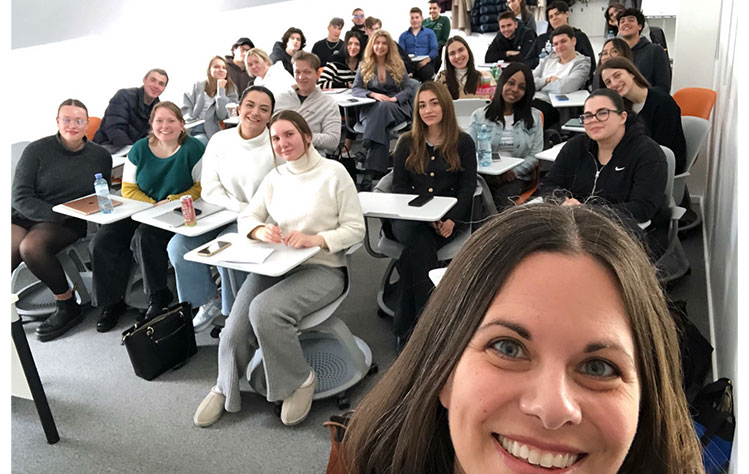 Lindsey Kingston with students at the Webster Vienna campus.
Lindsey Kingston with students at the Webster Vienna campus.
Lindsey Kingston, associate professor of international human rights at the Webster Groves campus, piloted a “human rights semester” for Webster Vienna students during the spring of 2024. Human rights is not a subject offered at the Vienna campus, but through Kingston’s fellowship, Vienna students had the opportunity to earn a human rights minor. Kingston taught a course in human rights and global migration during her time in Vienna. She also began a collaborative student-faculty research project with Webster Groves student Meghan Meehan, who is majoring in human rights and was studying abroad in Vienna at the time.
“I think many St. Louis-based students have some anxiety about studying abroad, while students at our international campuses don’t necessarily know about opportunities to study human rights at Webster,” explained Kingston. “I’d love to see us build more cohort-based travel opportunities and expand our roster of human rights students across Webster’s global network.”
Kingston cultivated relationships with Vienna faculty interested in human rights and identified potential research opportunities for future students. This initiative improved the educational experience for participants and laid the groundwork for a sustainable model for future programs.
Muhtasarhon Mamatvaliyeva: Innovating Engaged Learning
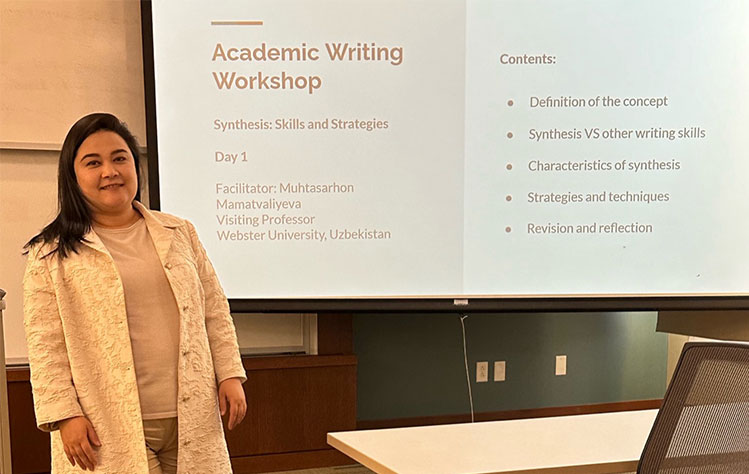 Muhtasarhon Mamatvaliyeva prepares to begin her academic writing workshop.
Muhtasarhon Mamatvaliyeva prepares to begin her academic writing workshop.
Muhtasarhon Mamatvaliyeva, a Teaching English to Speakers of Other Languages (TESOL) and English language professor from Webster University Tashkent, utilized her fellowship at the Webster Groves campus during fall 2023 to host an academic initiative aimed at improving academic writing skills among students. Mamatvaliyeva focused on the critical skill of synthesis in academic writing, which is essential for successful navigation of higher education demands.
As part of her fellowship, Mamatvaliyeva conducted a two-day workshop titled “Synthesis: Skills and Strategies in Academic Writing.” The workshop was attended by both undergraduate and graduate students who sought to enhance their academic writing skills. The two-day workshop aimed to advance student understanding of how to effectively identify, evaluate and synthesize scholarly information, which is crucial for the development of persuasive academic arguments and research papers.
Throughout the workshop, Mamatvaliyeva engaged students in various activities, including pair work and group tasks, which focused on analyzing models of synthesis essays and constructing synthesis paragraphs. These exercises aimed to improve the students' research skills, such as topic identification, credible source evaluation and the synthesis of information to establish a context for their academic inquiries.
About the Leif J. Sverdrup Global Teaching Fellowship
The Leif J. Sverdrup Global Teaching Fellowship continues to be a cornerstone of Webster University’s approach to global education. By enabling faculty to teach and conduct research at international campuses, the fellowship enriches the academic offerings of the university and fosters a global learning environment. These initiatives showcase Webster University’s commitment to fostering an academic environment that embraces global perspectives and prepares students for the challenges of an interconnected world.
Webster faculty interested in teaching abroad should consider applying to the Leif J. Sverdrup Global Teaching Fellowship. For more information, visit the Leif J. Sverdrup Connections page or connect via email at globalprogramdev@webster.edu.
